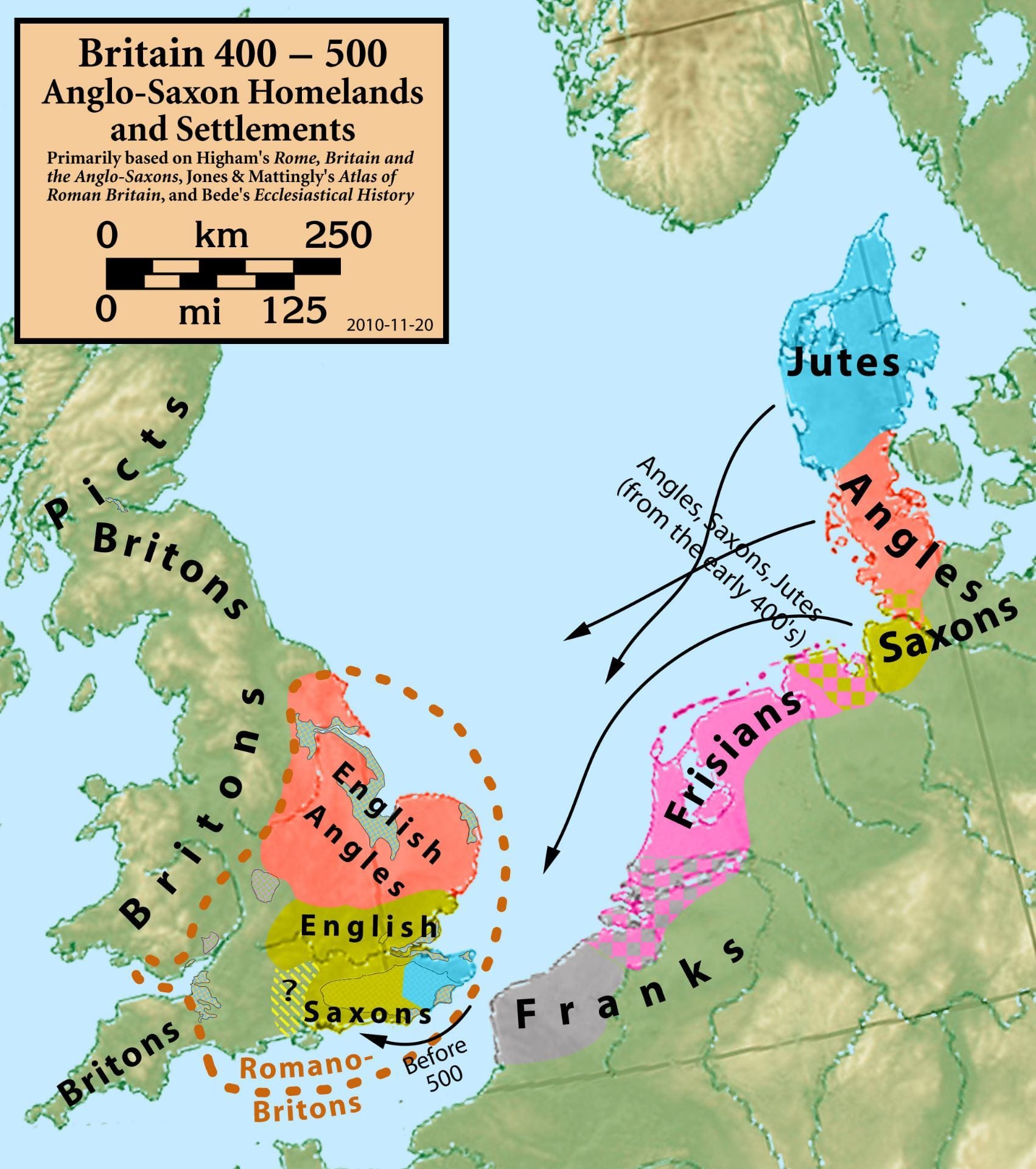An Introductory Presentation with Embedded Quiz Questions
Handout: Anglo-Saxon Riddles
Handout: This blog post as a handout with questions, crosswords and fill the blank activities (plus a translation of the runes below into Latin alphabet letters)
Handout: Worksheet on vocabulary for second-language English speakers
Futhorc – The Anglo-Saxon Rune Alphabet

Some General Details about the Anglo-Saxons
Our verb “to write” originally meant to tear, cut or rip. It comes from the Old Saxon word meaning “to cut” or “to score”. Actually, the word “write” is related to the modern German word for rip or tear, “reiβen”. The Angles, Saxons and Jutes were Germanic tribes who used a knife or another sharp tool to cut runes, not Latin letters. Generally, they didn’t write all that much. Our modern written alphabet derives from the Catholic missionaries who brought Latin and Christianity to England, but our word for the act of writing goes back to the Germanic tribes who cut or ripped words into wood or stone.

When the Roman legions began to pull out of Britain in AD 410, the native Britons were placed in a precarious and untenable position. For hundreds of years, they had had the most powerful military force in the world to protect them. Quite suddenly, that force was gone. The Britons hoped that the Angles, Saxons and Jutes, Germanic tribes, would protect them from the Picts and Scots in the north who were disturbingly eager to overrun them. It seemed like a good notion to let the Germanic tribes visit and become protectors.
This turned out to be a critical error, for the Angles, Saxons and Jutes came in waves from AD 449 onwards and decided to stay. As a result, many Britons withdrew to Cornwall and Wales to protect themselves from these aggressive and overbearing newcomers.
As the derivation of the word “write” shows, these Germanic tribes gave us our language. With the passing of time, of course, the English language was to borrow many words from other peoples. For instance, the Christian missionaries brought Latin, the Vikings contributed about 1800 words, referred to in quality dictionaries as Old Norse, and the Normans gave us thousands of French words.
Despite all these contributors to English vocabulary, the soul of the language, the building blocks, the words that are learned by English-speaking children at their mother’s or father’s knee and used in most English sentences, come from the Anglo-Saxons. Even the word “English” itself is formed from the word “Angles” (Anglish).
Public Domain
Once you discover these details about the origins of English, it becomes easier to understand why the language has so many idiosyncrasies. Here are some questions to which this history provides the answer:
♦ Why is English spelling so unpredictable?
English has a strange concoction of many spelling rules from a range of languages, including Latin, Old Norse (from the Vikings), Norman French and of course modern languages. Furthermore, in the formative years of modern English, the spelling was unpredictable because of variations in pronunciation from place to place and the lack of a central authority that could eliminate inconsistent and illogical spelling.
♦ Why are English and German so similar in many ways?
The language of the Angles, Saxons and Jutes was of Germanic origin. As a result, many of our most common words are similar to modern German words: mother (Mutter), brother (Bruder), father (Vater), house (Haus), sheep (Schaf), hound (Hund), etc.
♦ Why are Christmas and Easter celebrated on the dates of pagan festivals?
This was a cunning idea of the early Catholic Church and Christian missionaries. December 25 was already a pagan feast day known as Yule, so turning it into Christmas Day was likely to be well received by pagans who were converting to Christianity. Some historians also believe that Easter is connected to a goddess called Eostre, though this has been questioned by some scholars.
Quick Dips into the Story of English and the Origins of Words and Feasts
- Historic-UK: Anglo-Saxon Christmas
- Origins of English: A list of English words of Anglo-Saxon origin
- The word Wednesday: Online Etymology Dictionary
- University of Aberdeen Website: Anglo-Saxon Riddles

